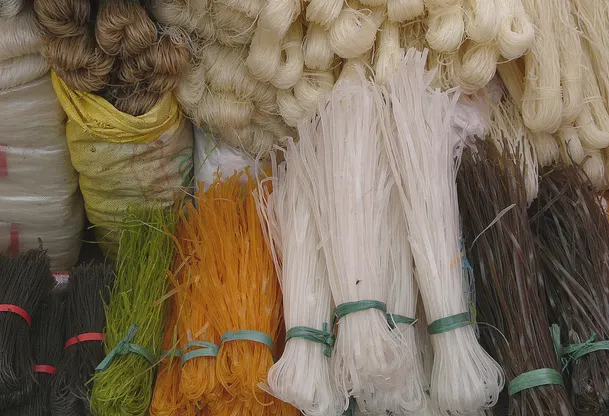Asian Noodles For Stir-frying
There are many types of Asian noodles available. Some of them are dry noodles, much like the Japanese instance noodle. Some are wet and is normally sold in wet market or supermarket with a relatively short shelf life. Some are so dry that it needs to soak for two hours before it turns soft for the purpose of stir-frying. It is important to understand how to deal with these noodles to succeed in Asian cooking.

Regardless of the name of the Asian noodles, you can easily do your per-preparation for stir-frying by following the following simple rules:
1. If the noodles are dry, not pliable at all in the form of a solid cake, boil it in hot water until is soften.
2. If the noodles are moist and pliable, blanch in hot water for less than one minute. The noodle will turn soft. Some of these noodles contain lye water (alkaline water). You need to remove it with plenty of water so that the residue alkaline taste will not be left in the noodles.
3. If it is rice vermicelli (bee-hon or 米粉), you need to soak it for at least for two hours before the vermicelli is soft enough for stir-frying.
How To Keep The Hydrated Asian Noodles
Once the noodles are soft enough, drain away from the excess water and it is ready to be used. However, the dry and wet noodles as mentioned above have to be used immediately after boiling/blanching, as they will turn soggy pretty fast. On the contrary, rice vermicelli can be kept for more than a week in the chiller if you drain off the water completely.
When you read any recipe, be sure the recipe mention clearly the weight of the Asian noodles is referred to the dry weight before boiling/blanching or after they turn soft. As a rule of thumb, the weight of the noodle will roughly double after boiling, blanching or soaking. For instance, the weight of 500g dry rice vermicelli is equivalent to 1kg of hydrated rice vermicelli.

Mary Flemister
Wednesday 25th of April 2018
I made your har gow and it was DELICIOUSLY perfect. So happy you don't even know. I been trying other recipes and didn't work for me. The shrimp tastes really really good and flavor really comes out. THANK YOU...made my day. Doh jeh! I'm Chinese. Mary
KP Kwan
Wednesday 25th of April 2018
Hi Mary, It is my reward for writing the recipe posts whenever I know that it works. I realize that the author of many good recipes does not provide sufficient details, so I try to provide as much detail as possible. Thanks so much and enjoy the har gow. KP Kwan